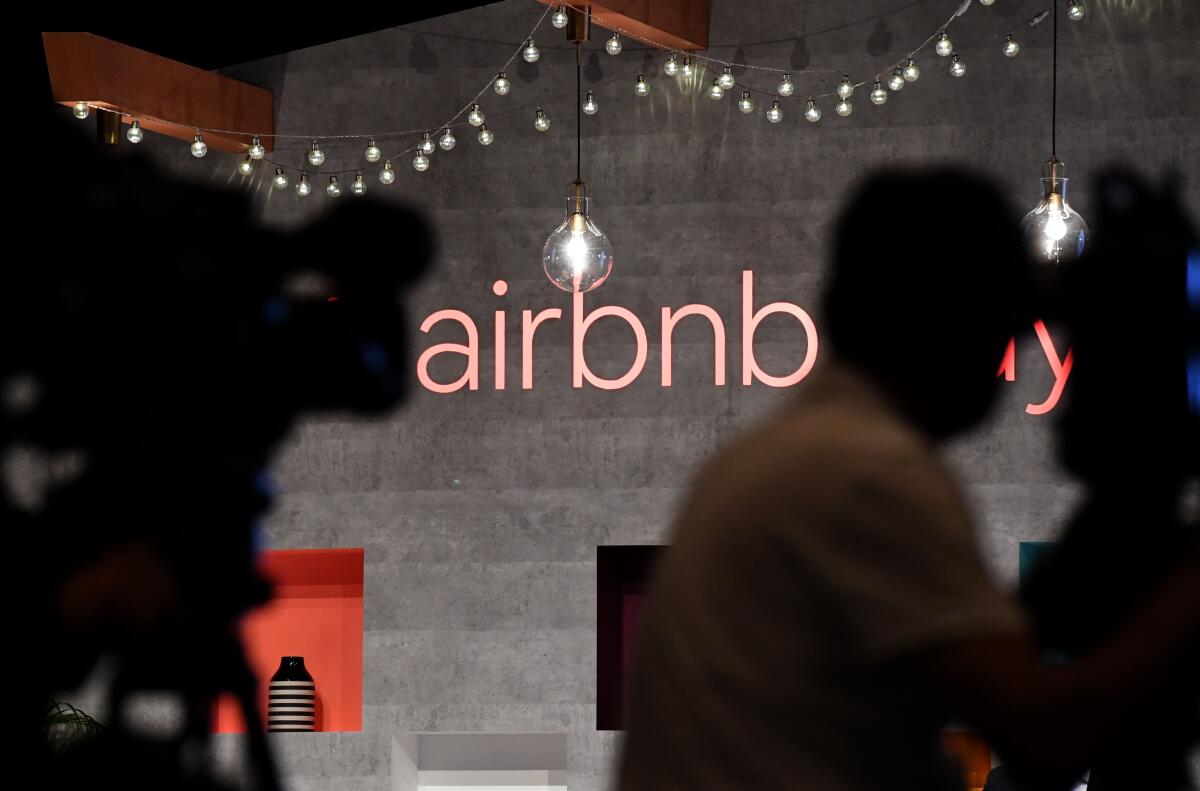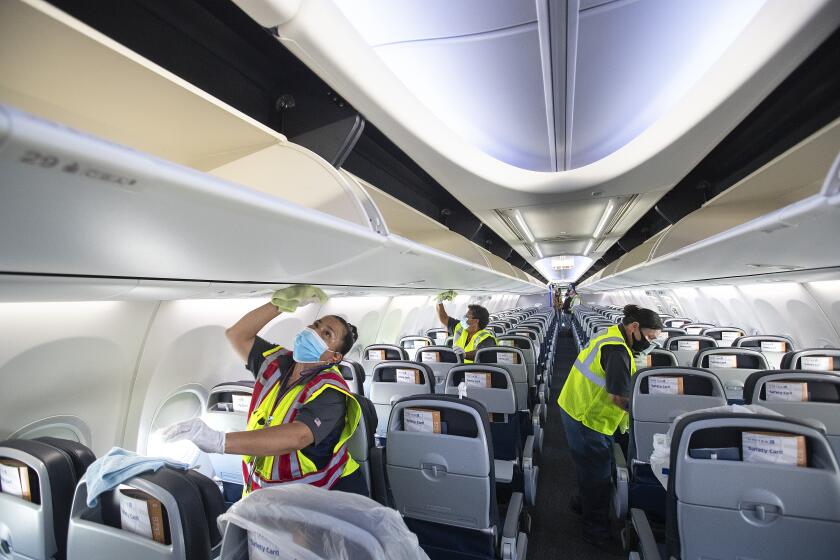Airbnb expects a decline in bookings due to rising COVID cases

Airbnb Inc. shares fell 4.5% in extended trading after the company forecast a decline in quarterly bookings compared with pre-pandemic levels, citing the spread of the Delta variant of the coronavirus.
The home rental company said the number of nights and experiences booked in the third quarter will fall short of the total during the same period in 2019. The disclosure Thursday amplified fears from investors that the latest outbreak will weigh heavily on the travel industry.
Booking Holdings Inc. and Expedia Group Inc. issued similar warnings about the effect of the Delta variant during their financial reports this month.
All three reported otherwise outstanding quarters. Airbnb blitzed past expectations for second-quarter bookings and gave a surprisingly positive revenue outlook for the current period, indicating that the expected decline in total bookings wonât hamper sales.
The San Francisco-based company reported a second-quarter gross bookings value of $13.4 billion, a 37% increase from pre-pandemic levels in 2019. Analysts had predicted $11.2 billion on average, according to data compiled by Bloomberg.
As the Delta variant spreads, employers are increasingly establishing vaccination mandates for their workers. Hereâs how those policies look.
Quarterly revenue came in at $1.34 billion for the three months that ended June 30, a 10% gain from the same period in 2019.
âThe travel rebound is upon us, and Airbnb is leading the way,â the company, which went public in December, wrote in a letter to shareholders published with the results. âIn the last few weeks, we had our biggest night ever in the U.S. and our biggest night globally since the pandemic began, with more than 4 million guests staying at an Airbnb listing.â
While Airbnb has benefited from a U.S. domestic travel boom linked to rising vaccination rates and easing restrictions, international sales remain stifled, and the Delta variant has raised further doubts for the future.
âWe anticipate that the impact of Covid-19 and the introduction and spread of new variants of the virus, including the delta variant, will continue to affect overall travel behavior,â the company said. However, it added a positive outlook for the current period, predicting the âstrongest quarterly revenue on record.â
Chief Executive Brian Chesky said the pandemic had forced the home-share company to become âmuch more disciplined and much more efficient.â COVID-19 will leave âindelible marksâ on Airbnb, Chesky said during a conference call. âWhen we started Airbnb, stays of longer than a month wasnât a major part of the business,â he said. Now, long-term stays of 28 days or more were the fastest-growing category by trip length. Thatâs ânot even traveling, itâs living,â Chesky said.
The travel industry has been gutted by the pandemic, which caused most of the worldâs tourism hot spots to shut down last year. Airbnb benefited from the remote work movement, in which city dwellers abandoned their apartments for extended stays in rental homes near beach towns and mountain villages. The home rental company saw bookings plunge 80% last March, but they quickly bounced back by the summer.
Short-term rentals were the fastest-growing part of the online travel industry even before COVID-19. Over the last 18 months, theyâve largely kept the sector afloat. Almost 30 cents of every dollar spent in hospitality today is going toward short-term rentals, according to an analysis of data compiled by researchers AirDNA and STR Inc.
The increase in demand has led to a heightened rivalry between the worldâs biggest online travel companies. Booking and Expedia have been aggressively courting landlords in the U.S., particularly those who list on Airbnb.
âThereâs been some recent concern about whether Airbnb is reaching a point of maturation and whether they can continue the supply growth theyâve seen,â Dan Wasiolek, an analyst at Morningstar Investment Service, said before the results were published.
Airbnb reported that the number of active listings grew in the second quarter. âWeâre seeing the strongest supply increases in the areas with the greatest guest demand,â the company said in the statement. Earlier this year, Airbnb introduced a digital campaign focused on recruiting new hosts, and the company said traffic to its host landing page more than doubled in the countries where the campaign was running.
Despite the doubts raised by Delta, Airbnb saw an almost 200% surge in nights and experiences booked, which includes all stays and tourist activities sold on the platform. The company reported 83.1 million total bookings for the quarter, topping the average analyst estimate of 77.5 million.
Airbnb reported adjusted earnings before interest, taxes and other expenses of $217 million, well above analyst predictions of $50.4 million. The company reported a loss of 11 cents a share. Analysts were expecting a wider loss of 41 cents.
More to Read
Inside the business of entertainment
The Wide Shot brings you news, analysis and insights on everything from streaming wars to production â and what it all means for the future.
You may occasionally receive promotional content from the Los Angeles Times.









